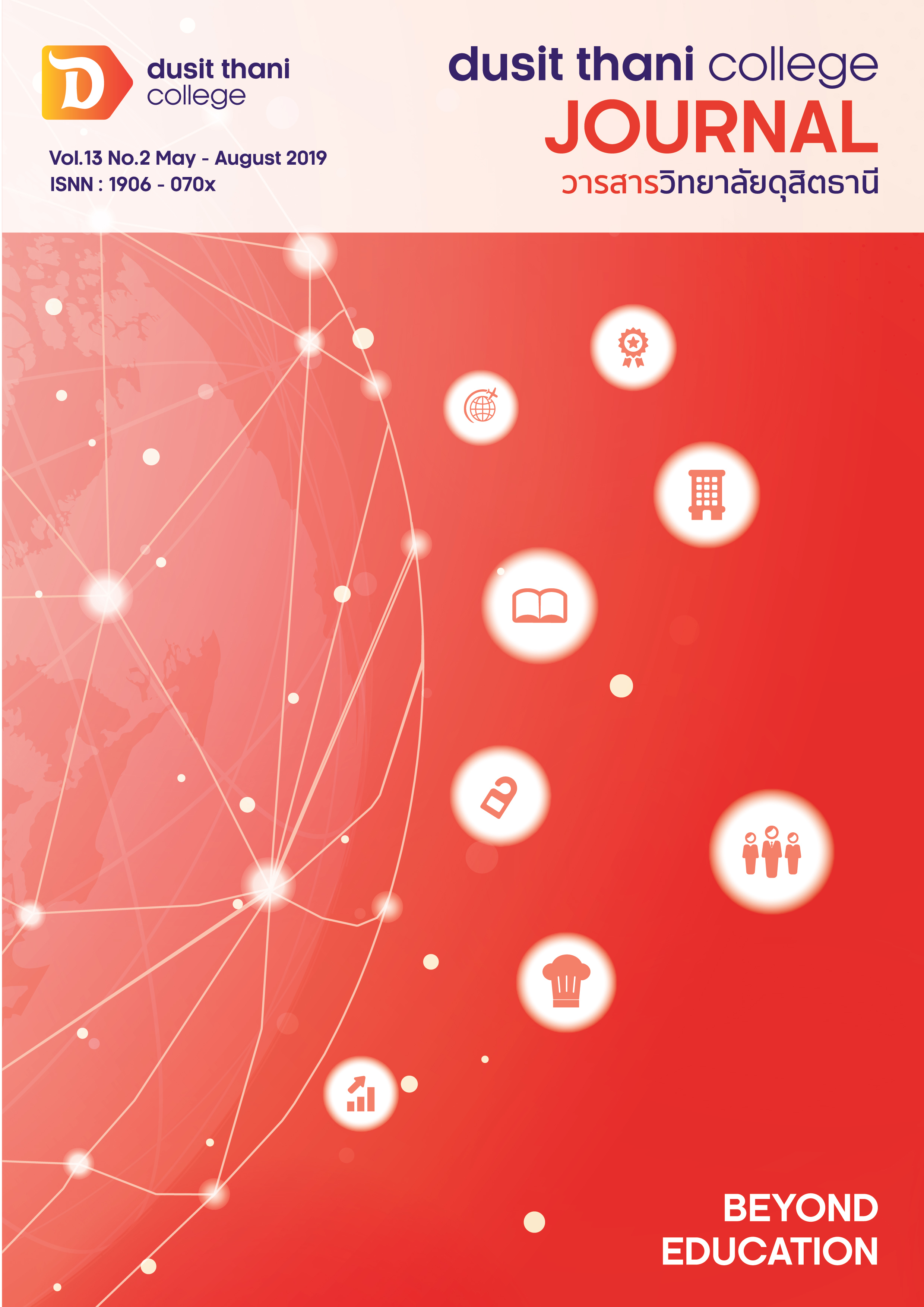Model and Strategies for Sports Tourism Management of The Western Region in The Context of Thailand 4.0
Main Article Content
Abstract
The purposes of this research were to : 1) study situation and need of sports tourism management in the western region in the context of Thailand 4.0, 2) synthesize sports tourism management model of the western region in the context of Thailand 4.0, 3) analyze and define sports tourism management strategies for the western region in the context of Thailand 4.0, and 4) affirm sports tourism management model and strategies of the western region in the context of Thailand 4.0. The methodologies of this research were mixed between policy research and Ethnographic Delphi Futures Research. The data were collected by document analysis, participatory observation, and in-depth of interview thirty professionals and stakeholders. The assessment of the appropriateness of the strategies were done by seventeen experts.
The results of the study are as follows: 1) For about the tourism situation and needs, the study found that the western region has the potential of tourism resources and is ready to develop sports tourism management. In addition the government should set a clear policy on sports tourism for each area while creating a new model of sports tourism to meet the tourists' needs. 2) Sports tourism management model of the western region in the context of Thailand 4.0 is “SPORT- K Model”: S – Standard, P – Participation, O – Organizing, R – Responsibility T - Technology and Innovation and K – Knowledge. 3) From the analysis of this study the researcher anticipated five sports tourism management strategies which include: (1) potential development of sports tourism management in the western region, (2) promotion of the price and value added by using local resources to create sports tourism activities, products and services on the basis of community identity through the participation of communities, networks and stakeholders, (3) development of sports tourism management to balance community tourists and stakeholders, (4) development mechanism to drive sports tourism management in the western region, and (5) development of human resources through technology and innovation to strengthen sports tourism activities that support Thailand 4.0. 4) The Policy Meeting found that stakeholders had a consensus that the model and five strategies of sports tourism in the western region in the context of Thailand 4.0 were appropriate and feasible.
Article Details
Article Screening Policy
- All research and academic articles to be published must be considered and screened by three peer reviews in the relevant field / article.
- All articles, texts, illustrations and tables published in the journal are the personal opinions of the authors. Editors don't always have to agree. And no responsibility whatsoever is the sole responsibility of the author.
- The articles to be published must never be published. Where did you first publish? And not in the consideration of other journals If the audit found that there has been a duplicate publication It is the sole responsibility of the author.
- Any article that the reader sees as being plagiarized or impersonated without reference. Or mislead the work of the author Please let the journal editor know it will be your greatest blessing.
References
2. Kaisornrat, S. and Naksanee, T. (2017). The development of the local community into a destination for sports tourism: Case study of Chom Bueng Community, Ratchaburi Province. Complete Research Report. The Thailand Research Fund. (in Thai)
3. Limpiroj, N. (2011). Implication for Sport Tourism Development of Nakhon Ratchasima, Thailand. Master of Business Administration. Khon Kaen University.
(in Thai)
4. Maesincee, S. (2016). Concept of Thailand 4.0. Retrieved March 23, 2017.
from www.thairath.co.th/content/613903 (in Thai)
5. Ministry of Tourism and Sport. (2016). National Tourism Development Plan 2012-2016. Retrieved August 25, 2016 from www.oic.go.th/FILEWEB/CABINFOCENTER3/DRAWER065/GENERAL/DATA0000/00000150.PDF (in Thai)
6. Office of the National Economics and Social Development Board. (2016). The 12th National Economic and Social Development Plan. Retrieved March 23, 2017
from www.nesdb.go.th. (in Thai)
7. Phonprasert, W. (2011). Strategic Management. Nonthaburi : Sukothai Thammathirat Open University. (in Thai)
8. Fourie, J., Siebrits, K. and Spronk, K. (2011). Tourist displacement in two South African sport mega-events. Development Southern Africa. New Jersey : John Wiley and Sons.
9. Hussain Kashif. et al. (2015). “Sustainable tourism and resulting resident satisfaction at Jammu and Kashmir, India”. Worldwide Hospitality and Tourism Themes 7(5) : 486-499,
10. Saayman,M. (2002). Hospitality. leisure and tourism management. Potchefstroom: Leisure Consultants and publications.
11. Ross, Stephen D.(2001). Developing Sports Tourism. National Laboratory for Tourism and Ecommerce. University of Illinois.
12. Turco, D. M., Riley. R., Swart, K. R ,(2002). Sport Tourism. Morgantown : Fitness information Technology.


